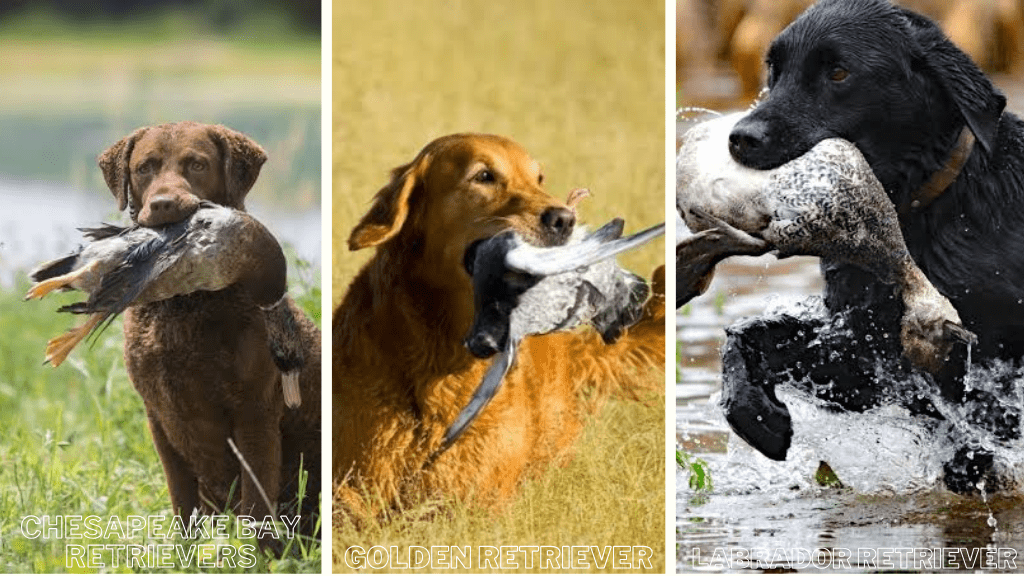Hunting dog breeds
Introduction
Hunting dog breeds are a crucial component of the hunting world, offering unparalleled assistance to hunters in various activities.
These specialized breeds possess a unique set of skills, characteristics, and instincts that make them invaluable companions in the pursuit of game. Understanding the different types of hunting dog breeds, their attributes, and their roles in hunting is essential for any enthusiast or prospective owner.
Characteristics of Hunting Dog Breeds
Hunting dog breeds exhibit a range of physical attributes, temperaments, and behaviors that are finely tuned for the task at hand. Physically, these dogs often possess traits such as keen senses, endurance, agility, and strength.
Their coats may vary depending on the environment they typically hunt in, with some breeds having water-resistant fur for waterfowl retrieval, while others have dense coats to withstand cold climates.
In terms of temperament, hunting dogs are typically energetic, intelligent, and highly trainable. They exhibit a strong desire to work alongside their owners and have a natural instinct to track, retrieve, or point out game.
Additionally, many hunting breeds are known for their loyalty and strong bond with their human companions, making them not just effective tools but beloved members of the family as well.
Popular Hunting Dog Breeds
1. Retrievers

Labrador Retrievers, Golden Retrievers, and Chesapeake Bay Retrievers are renowned for their excellent retrieving skills, particularly in waterfowl hunting. They have soft mouths, allowing them to retrieve game without damaging it, and their friendly demeanor makes them great family pets as well.
2. Pointers
Breeds like English Pointers, German Shorthaired Pointers, and Brittany Spaniels are adept at locating game birds and indicating their presence by freezing or “pointing” towards them. Their keen sense of smell and natural hunting instincts make them indispensable assets in upland bird hunting.
3. Hounds
Beagles, Bloodhounds, and Coonhounds excel in tracking game by scent. Their exceptional olfactory senses allow them to follow a trail for miles, making them ideal for small game hunting or trailing wounded game during big game hunts.
4. Spaniels
Spaniels, including Cocker Spaniels and English Springer Spaniels, are versatile hunting companions known for flushing out game birds from dense cover. Their compact size, agility, and enthusiasm make them well-suited for upland bird hunting in varied terrain.
5. Terriers
While not traditionally thought of as hunting dogs, certain terrier breeds like the Jack Russell Terrier or the Rat Terrier have been utilized for their tenacity and skill in hunting small game such as rodents or rabbits.
Each of these breeds brings its own unique set of skills and characteristics to the hunting field, catering to different hunting styles, terrains, and game preferences.
Uses of Hunting Dog Breeds
Hunting dog breeds play a vital role in a variety of hunting activities, including:
1. Waterfowl Hunting
2. Upland Game Bird Hunting
Pointers and Spaniels are commonly used in upland bird hunting, where they help locate and flush out game birds such as pheasants, quail, and grouse from their hiding spots in fields, woods, or brushy areas.
3. Small Game Hunting
4. Big Game Hunting
Considerations for Choosing a Hunting Dog Breed
1. Hunting Environment and Terrain
2. Owner's Hunting Preferences
3. Energy Level and Exercise Needs
4. Grooming and Maintenance Requirements
Training Hunting Dog Breeds
Proper training is essential to harnessing the natural instincts and abilities of hunting dog breeds. Here are some key aspects of training hunting dogs:
1. Basic Obedience Training
2. Specific Hunting Training Techniques
3. Socialization and Exposure
Conclusion
Hunting dog breeds are an integral part of the hunting tradition, offering invaluable assistance to hunters in pursuit of game.
Whether it’s retrieving waterfowl, pointing upland birds, tracking small game, or trailing wounded big game, there’s a hunting breed suited to virtually every hunting scenario.
By understanding the characteristics, uses, and training needs of hunting dog breeds, hunters can select the perfect companion to enhance their hunting experience and forge a lifelong bond.
Table of Contents
FAQs
1. What are the best hunting dog breeds for beginners?
2. How do I choose the right hunting dog breed for my hunting style?
3. Are hunting dog breeds suitable as family pets?
4. How much exercise do hunting dog breeds require?
Hunting dog breeds are typically high-energy breeds that require regular exercise to stay healthy and happy. Daily walks, runs, or play sessions are essential to fulfill their exercise needs and prevent boredom or destructive behavior.
5. What type of training do hunting dog breeds need?
6. How can I socialize my hunting dog breed?
7. What are some common health concerns for hunting dog breeds?
Common health issues in hunting dog breeds may include hip dysplasia, ear infections (especially for breeds with floppy ears), and certain hereditary conditions. Regular veterinary check-ups, proper nutrition, and preventative care can help mitigate these risks.
8. Can hunting dog breeds be trained for other purposes besides hunting?
Yes, many hunting dog breeds excel in other roles such as search and rescue, therapy work, obedience trials, and even as service dogs. Their intelligence, trainability, and willingness to work make them adaptable to various tasks and environments.
- You might be interested in reading this posts as well..